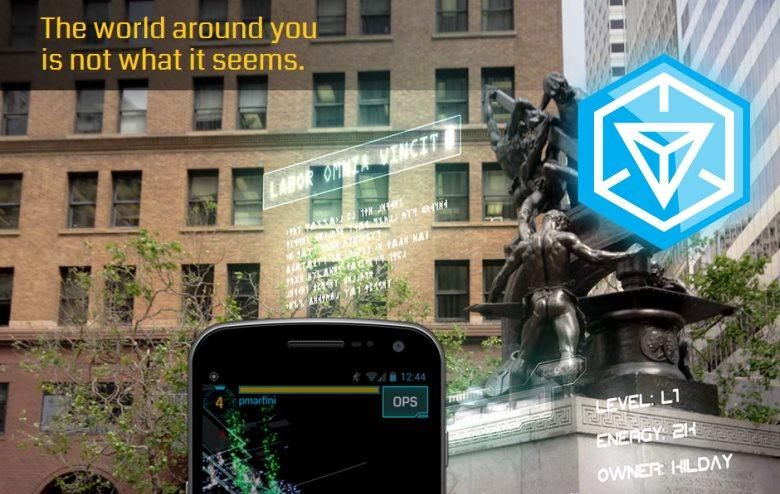"The world around you is not what it seems." At least that's what the website for Google's latest pet project would have you believe. Two new apps from a group inside Google have recently surfaced, both published by a somewhat cryptic group called NianticLabs@Google. The first app, originally called Scout and now called Field Trip promises to help you find "cool, hidden, and unique things in the world around you". It does this by running in the background on your smartphone and alerting you when you get close to something interesting and displays a card with details about the location.
A mysterious energy (XM) has been unearthed by a team of scientists in Europe. The origin and purpose of this force is unknown, but some researchers believe it is influencing the way we think. We must control it — or it will control us.
Ingress is the second app from NianticLabs@Google. Currently in a closed-beta and accessible by invitation only, Ingress is a game that encourages people to get out into the world around them and find "Portals". Once in range of a portal users upgrade it by deploying "resonators" and "shields", and can connect portals together to form "links" and "control fields". Resonators must be recharged every several days to prevent them from "decaying". To make links over longer distances the resonators need to be upgraded to higher levels and you must have a "key" from the portal to which you're trying to connect. Doing this earns you points which helps you level up. As your level increases you can deploy higher level resonators — and utilize higher power weapons. Yes, weapons.
You see, you're not alone out there. The Enlightened seek to embrace the power that XM may bestow upon us. The Resistance struggle to defend, and protect what's left of our humanity. As one side is busy claiming, upgrading, and linking portals, the other side is doing the same — and each side is trying to destroy that which the other side has built up.
The game is scored according to which faction has the most "MU" under their control. "MU" stands for "Mind Units" — people who live under the control fields created by linked portals.
What does Google hope to achieve?
The game is highly addictive. I've been playing for the Resistance since I got my invite in November. It gets people out of their homes, out of their offices, and out to places they may have never been, seeing places they may have never seen. Remember, outside the game, these "portals" are POIs. Getting people to walk or drive to these locations helps Google know the various routes by which they can be reached, and which routes people use at different times of day. Players can also submit suggestions for new portals by sharing geo-tagged photos of new POIs to "NIA Super Ops".
Is this Google's answer to Four Square? Though we're not certain, we suspect Google is using the information gathered in the game to make their maps and navigation offerings better and more complete for everyone. Ingress started with portals at works of art (sculptures, etc.), museums, post offices, and fire stations. Since then we've seen portals at police stations, memorial sites, and even a local Tasty's Donuts.
How can you get started?
If you want to play, head to www.ingress.com and request an invitation — then wait. No, Pocketnow doesn't have a secret stash of invites laying around (though, if +Brandon Badger is reading this, Pocketnow would be happy to recruit motivated players to the game!). Brandon Badger works for Google and has been handing out invites to some people who have shared Ingress-related art work with him on Google+.
To help keep you entertained while waiting for your invite there's a lot of back-story to the game at the Niantic Project website.
The game is insanely fun to play and is an ingenious way for Google to build-out their POI database!

